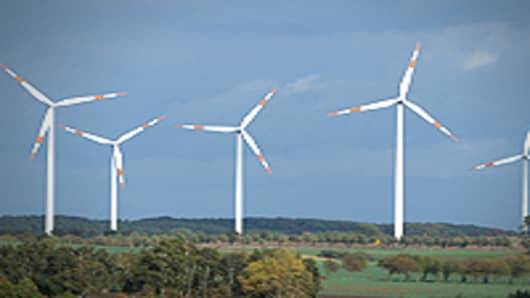Editor’s Note: One of the key areas of focus at the Aspen Ideas Festival is the environment. This blog post addresses this topic.
Government and business leaders descended on Rio de Janeiro recently for the Rio+20 conference on sustainable development, hashing out plans to reduce poverty, advance social equity and ensure environmental protection. At the conclusion of the event, eight of the world's largest development banks pledged to invest $175 billion towards low carbon transportation projects over the next 10 years.
That’s certainly an impressive commitment to reduce emissions and promote environmental sustainability. But as the CEO of a leading company in the space, the paramount question for me is: How can we ensure that such “clean” investments trigger transformative changes in how we produce and consume energy, reversing the negative impact that rising energy costs are having on our businesses and global economy?
Despite billions of dollars of investments, we have yet to see such a transformation. Today, more than ever, our ability to drive down energy costs and stem our global recession depends on such a transformative change.
I propose that we need to completely alter our paradigm for how we’re approaching the renewable energy challenge. Rather than rolling the dice for a revolutionary solution, more investment is needed in low risk technologies with the proven ability to scale over the short term.
The facts are daunting. Emerging economies with growing middle classes are expected to account for almost all of a predicted 50 percent increase in total energy demand by 2050. Demand for oil and energy costs are rising and the United States is not immune.
U.S. expenditures on oil imports as a percentage of GDPhave doubled from an average of 1.4 percent between 1990-2010 to 2.7 percent in 2012. India has increased from a 3.7 percent average to 5.9 percent.
Higher global oil consumption meant that consumers worldwide spent more than 5 percent of global GDP on oil alone in 2011. If IEA projections for 2012 oil demand are accurate, reports from Investing Daily indicate we’ll see oil costs approach 6 percent of global GDP in 2012, the highest levels since the energy crisis of the 1970s.
Goldman Sachs estimates that a consistent 10 percent increase in oil prices cuts two-tenths of a percentage point off economic growth over one year. Increased energy costs are directly tied to the rising cost of food, further exacerbating the challenge of global food poverty.
Today, the energy industry is awash in innovations promising new clean solutions — innovations being led by small companies like mine. Some have even compared the emerging clean energy industry to the internet and technology revolution of the 1990s.
But the road for renewable energy to achieve commercial scale is littered with failures — companies and ideas that have failed to cross the infamous “valley of death.” We see numerous companies failing to bridge the gap from capital-intensive successes in the laboratory to commercial scale deployments.
Over the next several years I believe we’ll be looking at a variety of non-food energy crops gaining favor among energy companies and the aviation industry. Jatropha, camelina, sweet sorghum are gaining interest because their upside is being advanced through new low-cost molecular breeding and genomic technologies, while commercial deployment is based on established, low-risk agricultural practices.
For SGB, our innovation comes from the seed of a Jatropha plant. Jatropha is a non-edible oilseed crop that grows on marginal land not suitable for food. Just a few miles from the Rio+20 gathering we’ve deployed a trial of our first generation Jatropha hybrids in partnership with JETBIO, a consortium including Airbus, TAM , Air BP and the Inter-American Development Bank. This is the first phase of a project that will ultimately scale to include 75,000 acres of Jatropha specifically for the production of aviation bio jet fuel. It’s a lower technology risk that results in a significantly greater internal rate of return for investors.
Watch CNBC's "Closing Bell" with Maria Bartiromo live from the Aspen Ideas Festival on Thursday, June 28 and Friday, June 29.
Kirk Haney is President and Chief Executive Officer of SGB, Inc. an energy crop company developing and delivering high performance bioenergy solutions for the renewable fuel, biomass and chemical markets. With operations in the United States, Central America, Brazil and India, the company has attracted partnerships and investments from some of the largest brands in energy, biotechnology and agribusiness including Thomas, McNerney & Partners, Finistere Ventures, Flint Hills Resources, LLC (a subsidiary of Koch Industries), Life Technologies Corp. and Bunge, the largest oilseed processor in the world.
CNBC and YPO (Young Presidents’ Organization) have formed an exclusive editorial partnership, consisting of regional “Chief Executive Networks” in the Americas, EMEA and Asia-Pacific. These “Chief Executives Networks” are made up of a sample of YPO’s unrivaled global network of 19,000 top executives from 110 countries who are on the frontlines of the economy. The opinions of “Chief Executive Network” members are solely their own and do not reflect the opinions of YPO as a whole or CNBC.


